Kindergarten
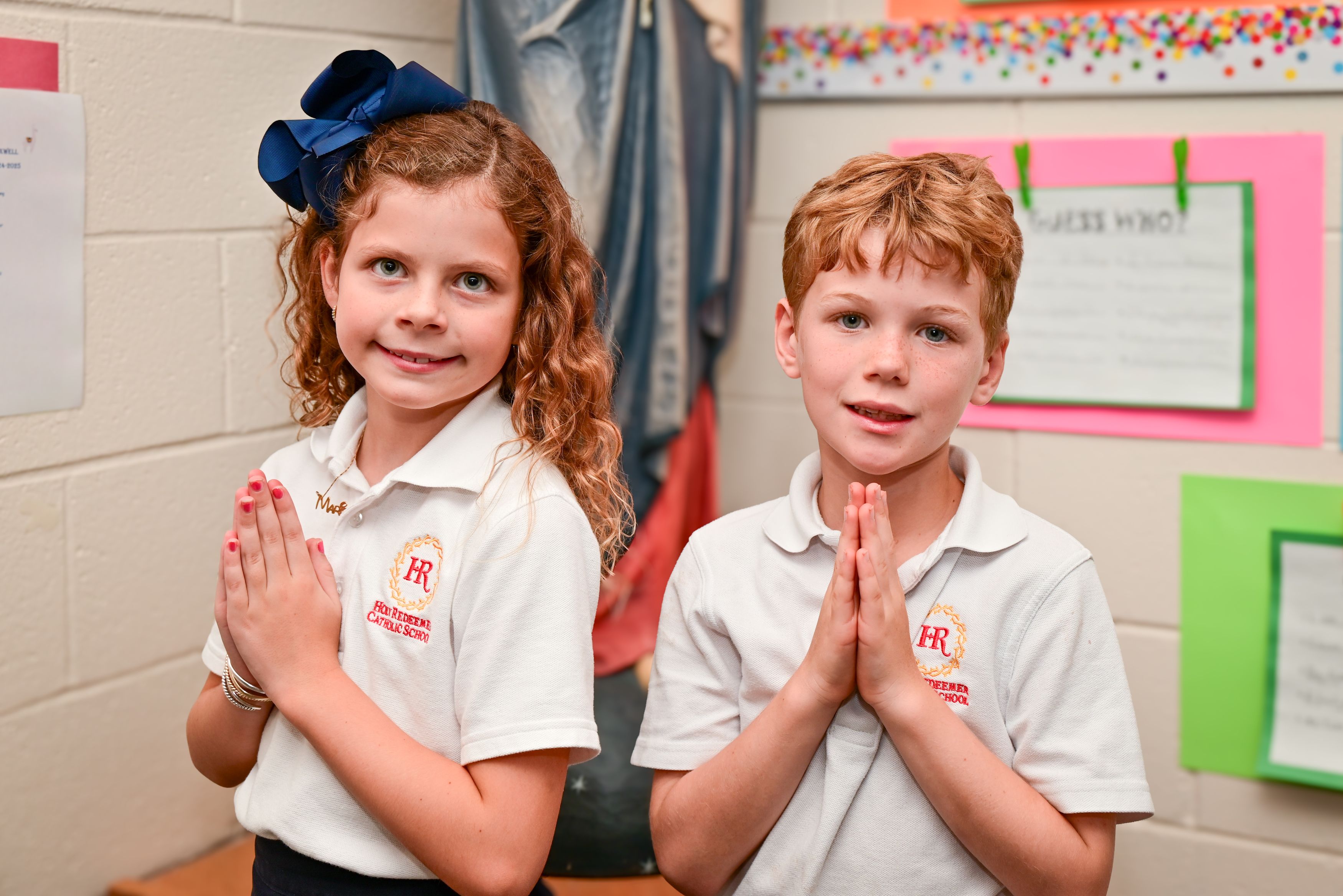
The Kindergarten classroom and curriculum is designed to stimulate and challenge each child. Lessons are facilitated to develop the whole child. The curriculum includes balanced instruction in Religion, Language Arts, Math, Science and Social Studies. Classes in technology, world language, physical education, art, music, and library provide increased learning opportunities.
The Kindergarten Religion Curriculum is based on Creed, Sacraments, and Christian Living. Students learn that everything in the World is a gift from God and worthy of our love and care. Students perform works of service for the greater community within the class setting. In this way, students learn about people in our church community and the many ways that they serve God. Through participation in liturgical and paraliturgical experiences, students learn about the seasons of the Church year and learn that the church is a sacred place where we gather and show our reverence for God. Students pray together as a class and school community throughout the school day.
The Kindergarten Language Arts Curriculum is based on systematic, explicit instruction of phonemic awareness, phonics, word knowledge, comprehension skills, writing and language arts skills. The Wonders Reading Program as well as Orton Gillingham Multi-Sensory Instruction are used to provide phonetically based instruction. Resource teachers work with the Kindergarten staff to meet with the children during Reading instruction. Additional instruction is provided to build phonemic awareness and language and auditory processing skills.
The Kindergarten Math Curriculum by Sadlier builds concepts and skills in sorting, geometry and patterns, positions, tables, graphs and fractions, addition, subtraction, money, time, measurement, and number concepts. Each of the skills are introduced concretely to allow the students to develop concept understanding.
The Kindergarten Science Curriculum facilitates exploration of living and non-living things, the five senses, magnets, forms of matter, and oceanic life. An introduction to scientific procedure provides students with an understanding of the concepts of gathering data, data analysis, problem solving, and cause-and effect.
The Kindergarten Social Studies Curriculum guides instruction in the concepts of time, holidays, local history, citizenship skills, national symbols, respect, peace and justice, families, cultures, map skills, the environment, community helpers, and differentiating between needs and wants as well as work and play.
Grade 1
In first grade, the child at Holy Redeemer begins a more formal approach to learning. Each classroom has a maximum of twenty-eight students staffed by a teacher and a full-time teacher assistant. An additional reading resource teacher provides daily support during the language arts instruction. In addition to learning the fundamentals of religion, reading, and math, children study science, social studies and world language. Music, art, physical education, technology, and library complete the first-grade experience.
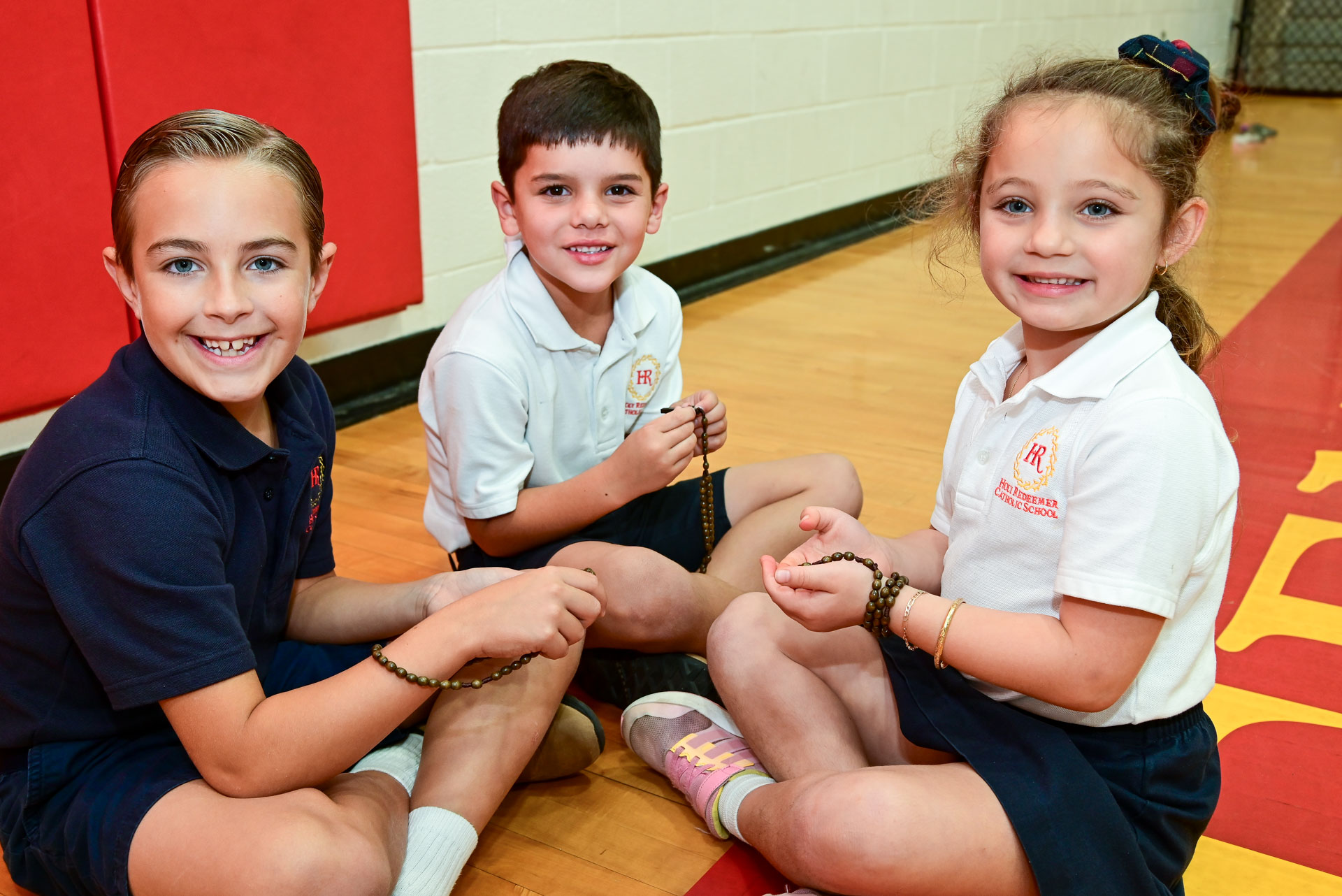
The Religion curriculum adopted by the Archdiocese of Atlanta, is rich in doctrine, scripture, and sacramental instruction. Religious education is further supplemented through liturgical and prayer experiences as well as service activities.
In Language Arts, the children continue their progress from emergent readers to independent readers through whole group and small group instruction. Flexible grouping is utilized to allow for individual growth and progress. Phonemic awareness, auditory processing, phonics, and literature combine to form the reading program. The Wonders and Orton-Gillingham programs are used to develop phonetic, encoding, and decoding skills which are necessary for independent reading.
The Sadlier Math curriculum emphasizes critical thinking, problem solving, and analysis through the use of manipulative materials and direct instruction. Our program allows the children to deepen their mathematical understanding while they develop basic skills. Ever cognizant of the importance of fluency in computation, teachers reinforce this skill with drill and practice.
The Science and Social Studies curricula of the Archdiocese include concepts that build upon the areas taught in the previous grade level. Expository text taught within Language Arts instruction is combined with content area instruction in these subjects. Hands-on and exploratory experiences assist with understanding and mastery of concepts.
Grade 2
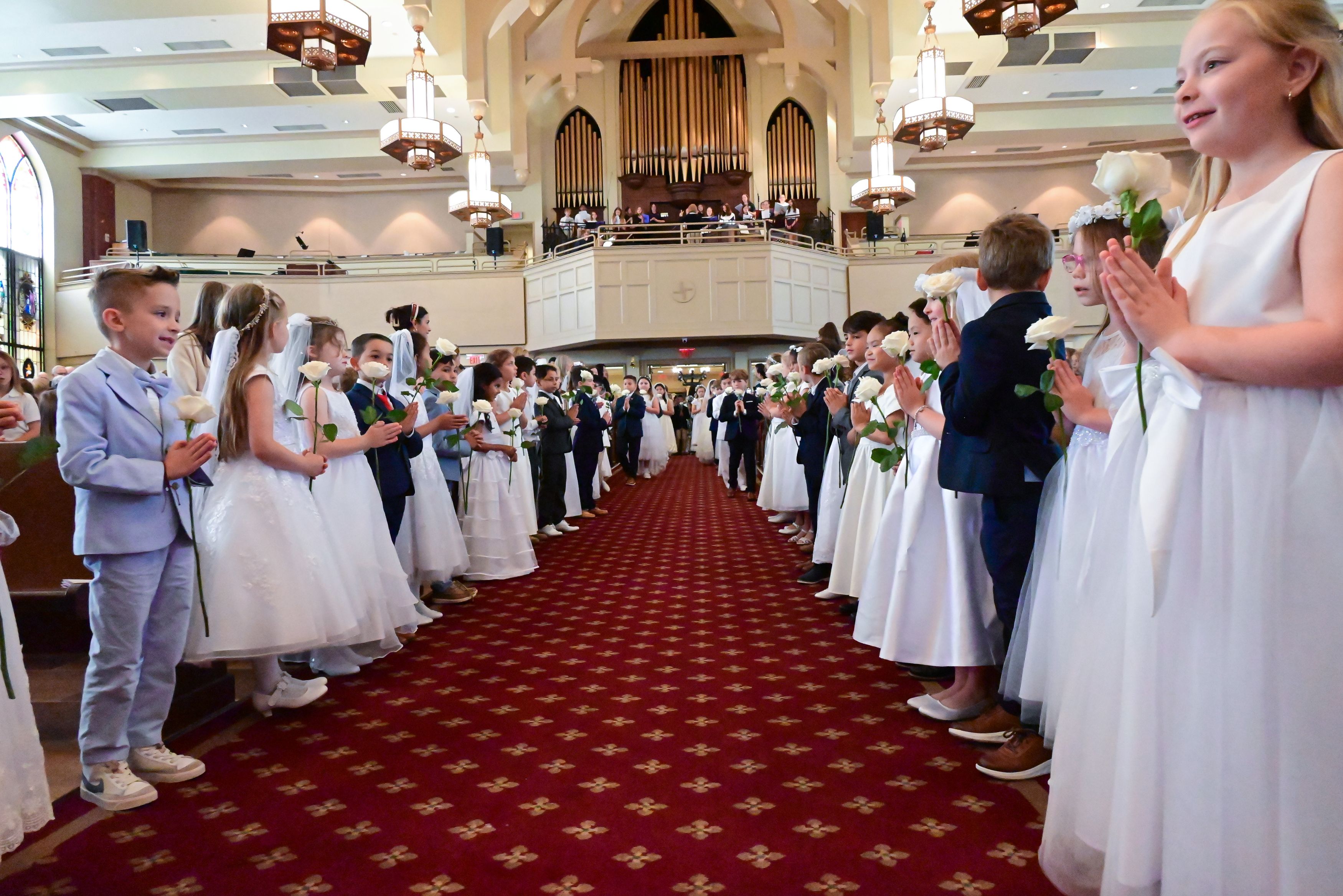
Our second-grade students continue to grow both academically and spiritually. Each classroom has a maximum of twenty-eight students and is staffed by a teacher and a full-time teacher assistant. Resource teachers provide daily support during our academic day. Reading, math, religion, social studies and science are core subjects in the second grade. World language, technology, art, music, library and physical education complete the second-grade curriculum.
The Religion curriculum encompasses daily modeling of our faith, understanding of the Gospel message, and the preparation for the sacraments of Reconciliation and Eucharist. Throughout the year the students participate in service projects, Masses, and liturgical celebrations, with emphasis on sacramental preparation and understanding of our Catholic faith.
Direct reading instruction is maintained through small, flexible grouping. Reading for meaning, critical thinking, and comprehension are stressed through the ongoing methods and strategies of Orton-Gillingham and Wonders. Second grade language is taught using a unique program incorporating traditional skills with an innovative approach to learning these skills which provides a solid foundation on which to build advanced writing and grammatical proficiencies and is aligned with the Archdiocesan curriculum standards for Language Arts.
In second grade, math concept instruction is combined with a daily mixed review of previously taught math concepts and skills. Through teacher-directed instruction, hands-on learning, and ongoing practice, children deepen mathematical understanding while developing problem-solving skills.
A more involved study of specific Science and Social Studies concepts is taught at this grade level. The archdiocesan curricula is followed, and continued hands-on and exploratory experiences deepen knowledge of previously taught concepts and introduce concepts new to this grade level. More formal assessments in these subject areas are introduced, and students are exposed to study guides and more extensive study skills.


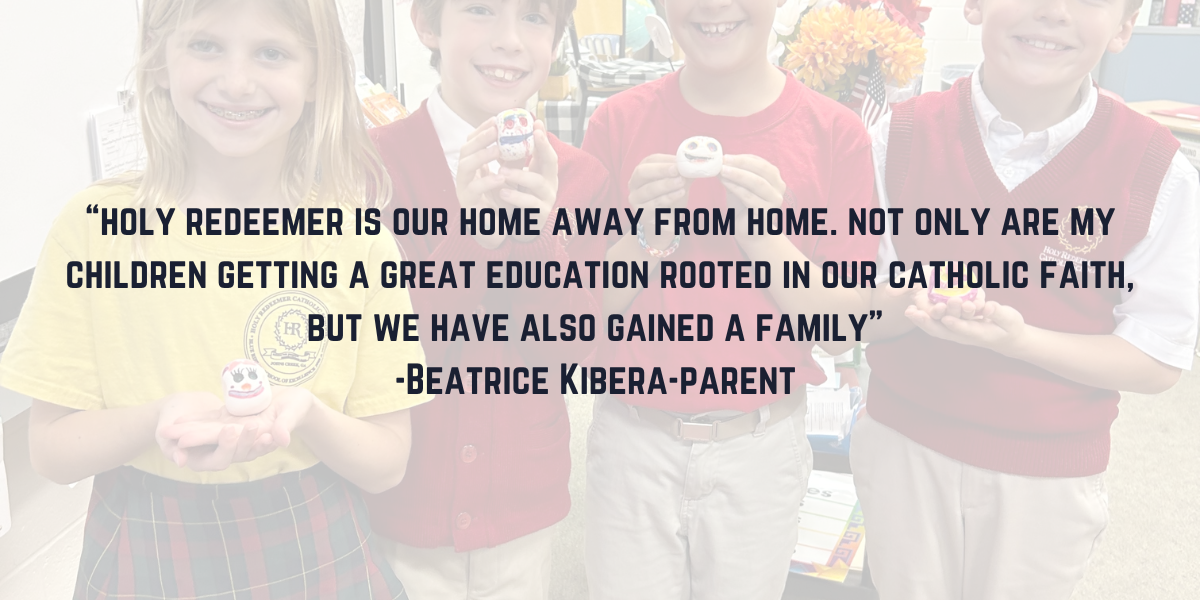
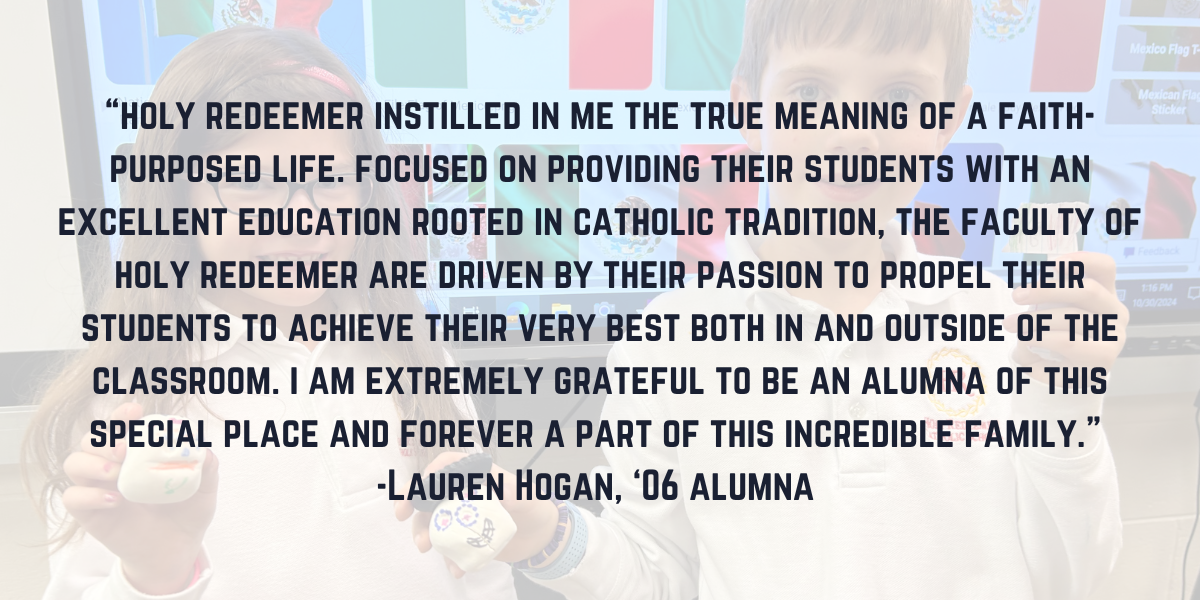
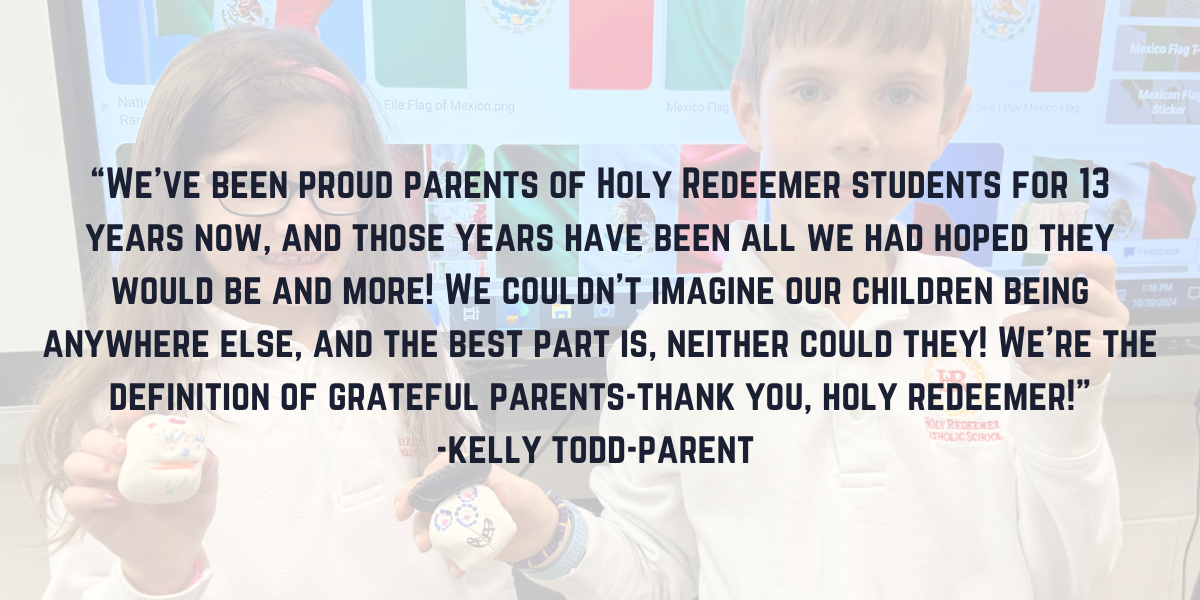
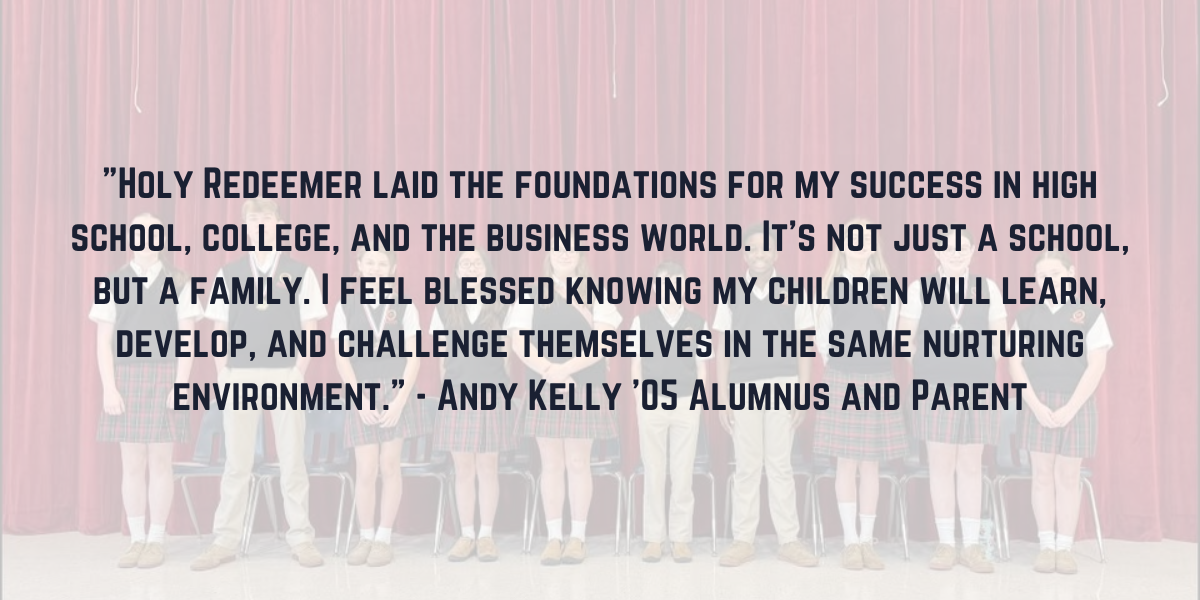
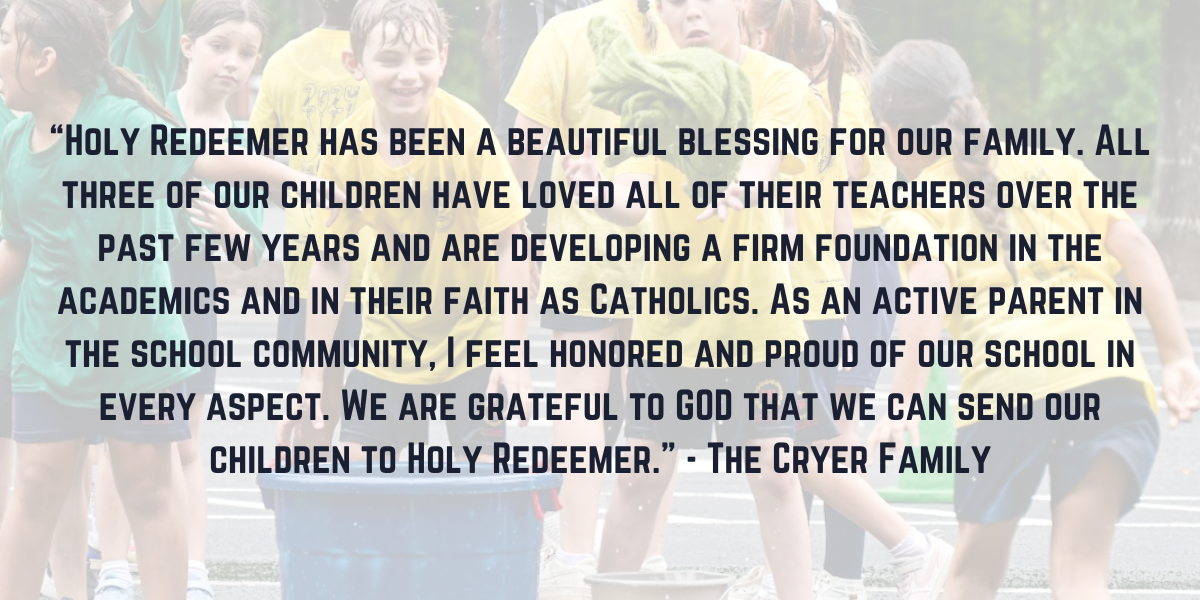
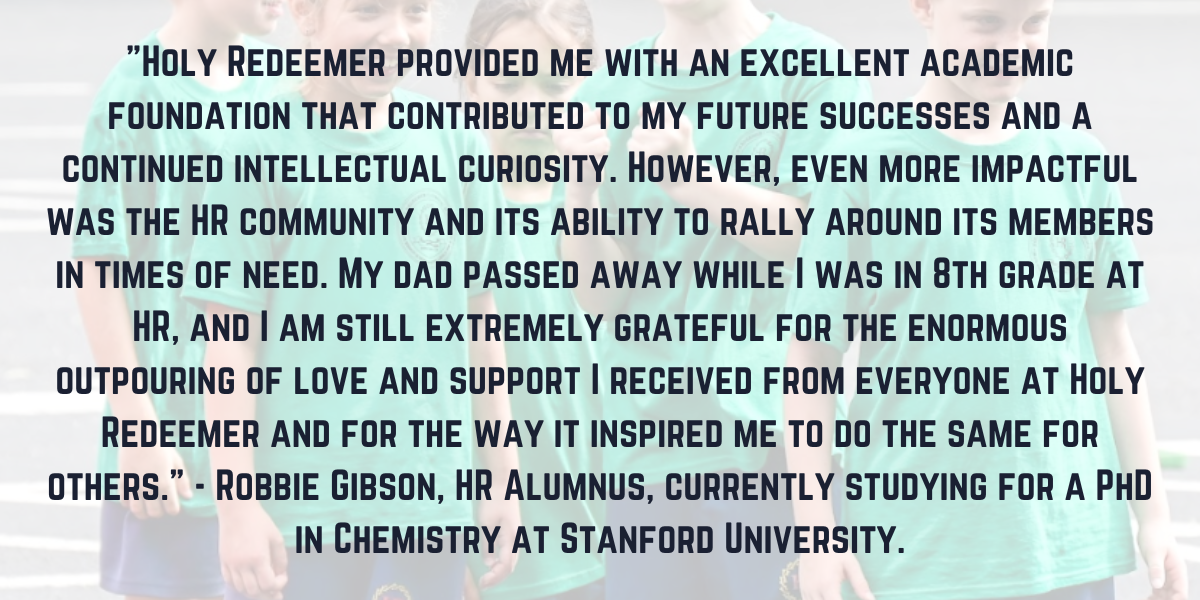
.png)